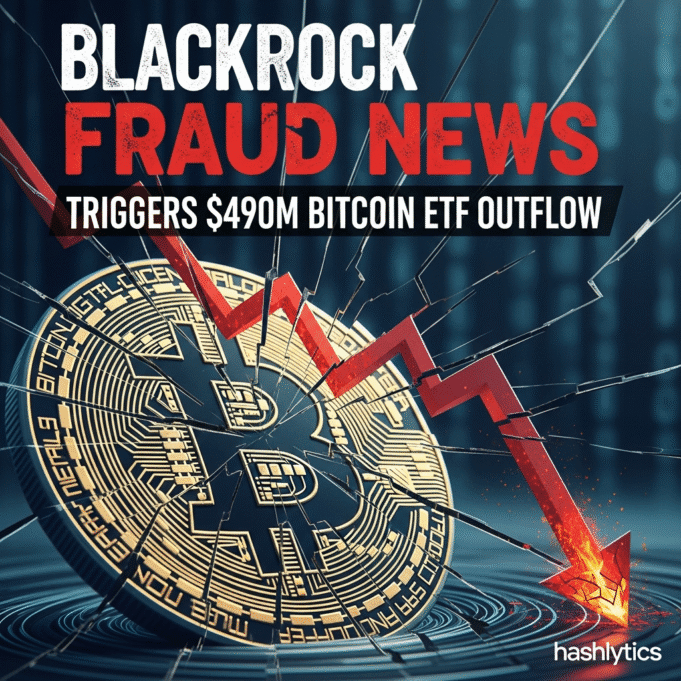+1.99%
+3.00%
+0.42%
+1.30%
+2.94%
-4.03%
Institutional investors appear to be pulling back, with significant redemptions observed across several Bitcoin ETFs. This comes as macroeconomic uncertainty continues to loom, with many analysts suggesting the outflows are more about profit-taking than outright panic.
On October 30th, institutional clients yanked a staggering $490 million from Bitcoin ETFs, according to data from Farside Investors. BlackRock’s IBIT ETF took the brunt of the hit, with nearly $291 million in redemptions. Fidelity, Bitwise, ARK, Invesco, VanEck, and Grayscale also felt the sting, recording significant outflows.
Ethereum ETFs weren’t spared either, with BlackRock’s ETHA feeling a considerable impact. The question on everyone’s mind: Is this a knee-jerk reaction, or a calculated move to safer harbors?
This institutional pullback suggests a growing risk aversion amidst economic headwinds. Investors are seemingly re-evaluating their portfolios, opting to trim exposure to more volatile assets.
The timing of these ETF outflows couldn’t be worse for BlackRock. A separate, but equally significant, scandal has emerged, involving a $500 million fraud within its private credit division. Bloomberg reports that HPS Investment Partners, BlackRock’s private-credit arm, is reeling from a telecom-financing scheme built on fabricated accounts receivable.
Court documents filed in the New York Supreme Court paint a picture of systemic forgery. Borrowers Broadband Telecom and Bridgevoice allegedly used bogus contracts and invoices from reputable companies like T-Mobile and Telstra to secure substantial loans.
The discovery of the fraud in August 2025 triggered bankruptcies and a flurry of lawsuits. BNP Paribas, a partner in the loan deals, is also caught in the legal crossfire. The timing is particularly unfortunate as the scandal surfaced a mere 90 days after BlackRock’s $12 billion acquisition of HPS, intended to bolster its presence in private credit.
The situation begs the question: Did BlackRock adequately vet HPS before the acquisition? The incident raises serious concerns about due diligence and risk oversight within the financial giant.
Despite these challenges, BlackRock remains a dominant force in the ETF arena. According to US Crypto News analysis, IBIT has attracted $28.1 billion in net inflows since the beginning of 2025, eclipsing all competitors combined. To put it bluntly, without IBIT, the sector would be in the red with net outflows of $1.2 billion this year.
This concentration of power raises a crucial point: systemic risk. If BlackRock were compelled to reduce its crypto exposure or face significant redemptions, it could trigger a liquidity crunch across the entire crypto ETF market.
As institutional investors reduce their Bitcoin ETF holdings, leveraged traders find themselves in a precarious position. Whale Insider pointed out on X that over $3 billion in Bitcoin short positions could face liquidation if the price surges to $112,600.
Currently, with Bitcoin trading near $109,287, it is within striking distance of that critical threshold. A relatively modest rally could trigger a short squeeze, sending the market into a rapid upward spiral. Liquidation data from Coinglass confirms that a significant number of short positions have accumulated just above the current price level.
The interplay between institutional redemptions and the potential for a short squeeze creates a highly volatile environment. Sentiment could shift dramatically at any moment, leaving traders scrambling to adjust their positions.
The Bitcoin ETF landscape is currently navigating a complex set of challenges. The confluence of institutional outflows and the BlackRock fraud scandal has created a palpable sense of unease. As the market grapples with these uncertainties, traders must exercise caution and remain vigilant. The interplay between institutional activity, leveraged positions, and the ever-present potential for regulatory shifts will continue to shape the future of Bitcoin ETFs.




